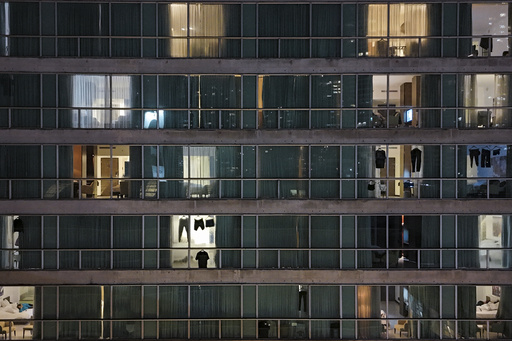
CARTI, Panama — A deportee from the United States, currently held in a camp in rural Panama along with about a hundred others who have refused to return to their home countries, described her dire situation on Saturday. She articulated the “harsh conditions” and lack of access to legal counsel and other basic rights affecting her and fellow migrants.
The Chinese woman, who requested anonymity to avoid potential repercussions from Panamanian officials, communicated via a concealed cellphone after being connected through a concerned family member. Her account revealed that authorities at the camp are seizing cell phones from migrants, effectively isolating them. She noted that the detainees come from diverse backgrounds, including Asian countries, Russia, Afghanistan, and Nepal.
According to her account, the personal freedoms of those in the camp are significantly restricted, with poor living conditions and constant surveillance from guards. “Someone follows me even when I go to the toilet,” she stated, highlighting the intense monitoring they experience.
Panamanian officials did not provide immediate comments regarding her testimony. This revelation surfaces amid considerable public reaction in Panama about the treatment of nearly 300 migrants deported from the United States and currently being held while arrangements are made for their return to their respective countries.
This situation is part of an agreement initiated under the Trump administration, whereby countries like Panama and Costa Rica temporarily detain deportees as “bridges” before they are sent back home. Initially, authorities had detained migrants in hotels located in Panama City. The government denied that they were being held against their will, though these individuals could not leave the hotel premises and were under police protection.
Many migrants displayed signs pleading for assistance, stating phrases like “please help us” and “We are not safe in our country.” Approximately 40% of the migrants opted not to return home, primarily due to fears of danger, while those willing to leave remained at the hotel. As per official reports, 13 migrants have already been sent back to their home countries.
Those who refused repatriation were transferred to a remote migrant camp in the southern Darien province, close to the infamous Darien Gap, which is known as a risky route for migrants traveling between Panama and Colombia. The camp, situated near the small town of San Vicente, Metetí, was initially set up to welcome migrants during the recent surge of individuals moving north through the region, although that influx has significantly diminished.
International organizations like the UN’s International Organization for Migration (IOM) are reportedly working to provide “safe alternatives” for the migrants currently residing in the camp. The IOM has clarified that it does not participate directly in the detention or limitation of the individuals’ movements.
On Saturday, the U.S. State Department extended its gratitude to Panama and Costa Rica for their roles in managing the deportees, stating on the social media platform X that the nations are “safely returning third-country nationals to their countries of origin.”
The deportee who spoke out shared that she spent five days in a hotel prior to being moved to the refugee camp. She expressed her desire to continue her journey to the United States and noted that she did not sign any documents related to her deportation, which is typically required.
She voiced concerns about the treatment of deportees in the Darien camp, stating they are monitored like convicts and stripped of essential rights while being denied access to the outside world. There has been an absence of legal assistance, with no offers of guidance from authorities regarding their rights. “But the Panamanian government kept asking us where to go,” she concluded.

